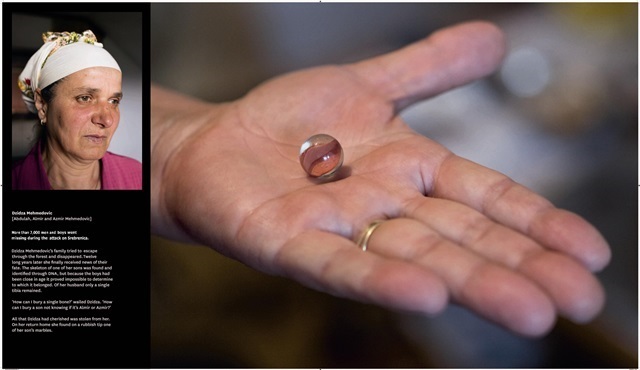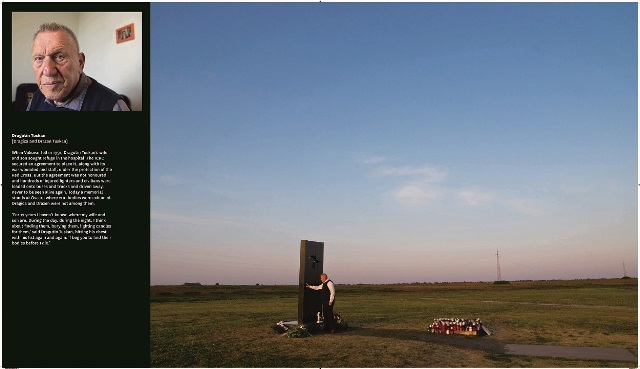Several years ago I was fortunate to work for the Australian Red Cross Society where I spent three years travelling across WA talking about the works of this terrific organisation. One of my guilty pleasures was sneaking into the Tracing Bureau, as it was called then, to hear heart-warming stories about people being reunited with family members who’d been separated by war, conflict or disaster. Now you have the opportunity to hear some of these amazing stories at the State Library.

© Nick Danziger NO UN-AUTHORISED USE OR COPYING WITHOUT PERMISSION. SEEK CLEARANCE BEFORE PUBLISHING
Under international humanitarian law, authorities on all sides of conflict have a legal duty to take every step to determine the fate of those who are missing and to pass this information on to their families.
The Red Cross Tracing Service works across international borders to help families re-establish contact with lost loved ones, exchange family news, and clarify the fate of the missing. It currently operates in 189 countries, including Australia.
‘An estimated 140,000 people, a quarter of whom vanished and were reported missing by their families, lost their lives during the wars in the Balkans in the 1990’s. As at last year about 12,700 people remain unaccounted for,’ says Alenka Jeram, Program Coordinator, Migration Support Programs, Australian Red Cross.

© Nick Danziger NO UN-AUTHORISED USE OR COPYING WITHOUT PERMISSION. SEEK CLEARANCE BEFORE PUBLISHING
In my day the Service was headed up by a tiny feisty woman you would not want to get on the wrong side of. No doubt her feistiness and never give up attitude was a critical part of her success during disasters such as Cyclone Tracey.
Red Cross have put together an exhibition called Missing Lives. The exhibition was first shown in London in 2010, and it is now touring in W.A. The photos, by award-winning British photographer Nick Danziger, document the plight of families waiting for news of loved ones. Each photograph is accompanied by a description of the missing person and their family’s search for answers. It highlights the human consequences of what happens when these rules are not respected.
‘These are powerful photos, they show the strength of those still searching for their loved ones, as well as documenting the work of Red Cross and other organisations to trace the missing,’ Ms Jeram says.
Almost 20 years after the wars in Serbia, Croatia and Bosnia, and 13 years after the end of the conflict in Kosovo, thousands of people are still missing. This Red Cross exhibition tells the story of some of those who are unaccounted for.
As I read about this exhibition I pondered …
- Clearly the Service is still doing amazing work and will be doing so for many years to come.
- I’m so proud to have been able to talk about the Tracing work in the past, and I really hope you get to see this exhibition.
The exhibition is on at the WA State Library, 25 Francis St, from May 21 until June 30. Free of charge. For more information about Red Cross and to make a donation so their work can continue go to Red Cross





2 Comments
A most interesting account of the great work carried out by Red Cross which often goes unnoticed by the general public.
Sincere thanks for bringing this to our attention. We shall certainly visit the exhibition.
Thanks for commenting Don. I hope you enjoy the exhibition